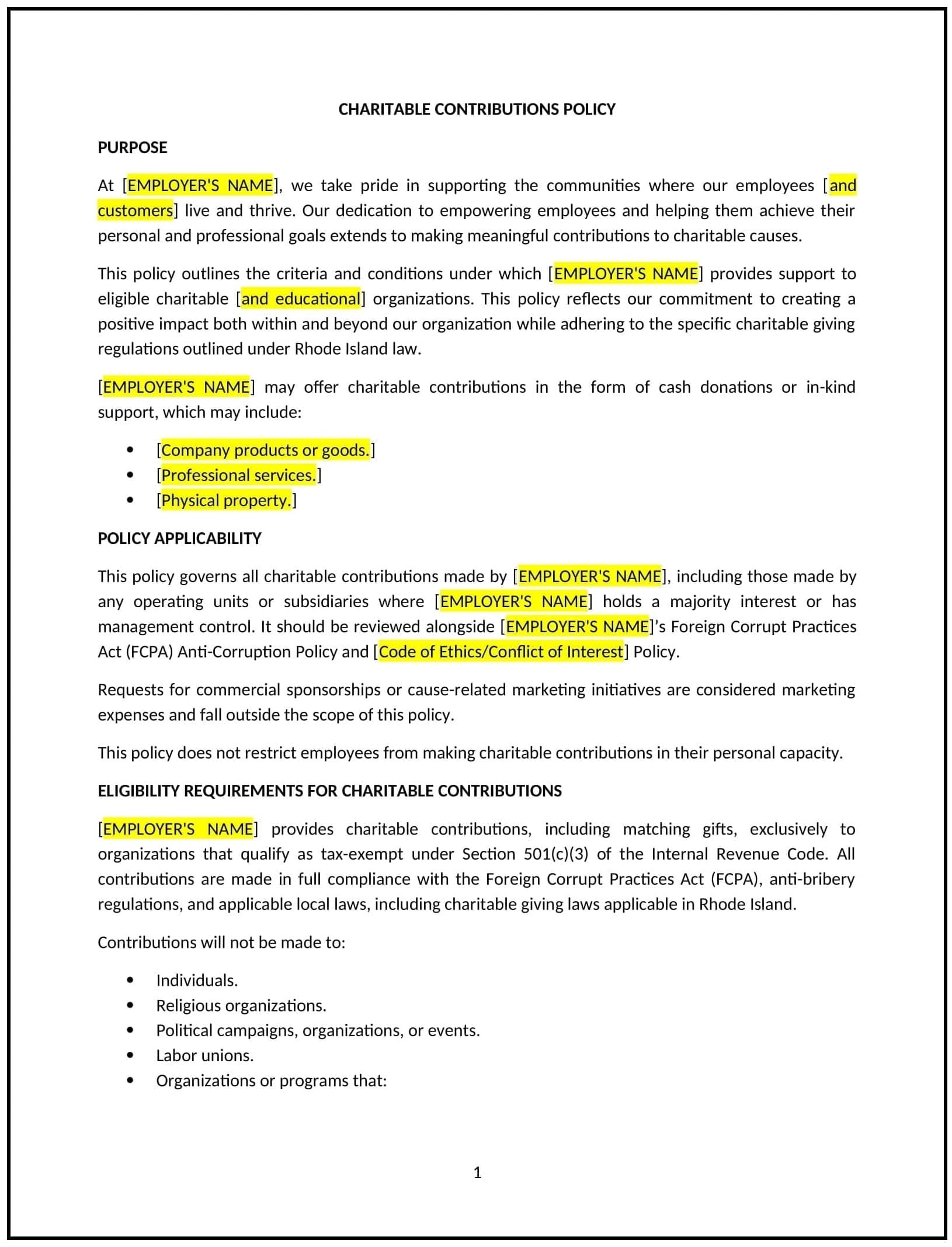Charitable contributions policy (Rhode Island): Free template
Got contracts to review? While you're here for policies, let Cobrief make contract review effortless—start your free review now.

Customize this template for free
Charitable contributions policy (Rhode Island)
This charitable contributions policy is designed to help Rhode Island businesses establish guidelines for donating to charitable organizations or supporting employee fundraising efforts. It outlines procedures for selecting charities, approving donations, and ensuring transparency in charitable activities.
By adopting this policy, businesses can demonstrate social responsibility, engage employees, and align with general best practices for corporate philanthropy.
How to use this charitable contributions policy (Rhode Island)
- Define charitable contributions: Explain what constitutes a charitable contribution, such as monetary donations, in-kind gifts, or employee fundraising.
- Establish selection criteria: Provide guidelines for selecting charitable organizations, such as alignment with business values or community impact.
- Set approval procedures: Outline steps for approving charitable contributions, including budget limits and documentation requirements.
- Address employee involvement: Specify how employees can participate in charitable activities, such as volunteer programs or fundraising events.
- Train managers: Educate supervisors on handling charitable contribution requests and promoting employee engagement.
- Review and update: Assess the policy annually to ensure it aligns with evolving business needs and community priorities.
Benefits of using this charitable contributions policy (Rhode Island)
This policy offers several advantages for Rhode Island businesses:
- Demonstrates social responsibility: Shows a commitment to supporting charitable causes and giving back to the community.
- Engages employees: Encourages employees to participate in charitable activities, boosting morale and teamwork.
- Aligns with best practices: Provides a structured approach to managing charitable contributions.
- Builds trust: Demonstrates transparency and accountability in charitable activities.
- Enhances reputation: Positions the business as a socially responsible and community-focused organization.
Tips for using this charitable contributions policy (Rhode Island)
- Communicate the policy: Share the policy with employees and include it in the employee handbook.
- Provide training: Educate managers on handling charitable contribution requests and promoting employee engagement.
- Monitor adherence: Regularly review charitable activities to ensure compliance with the policy.
- Address issues promptly: Take corrective action if charitable contributions are misallocated or if transparency is lacking.
- Update regularly: Assess the policy annually to ensure it aligns with evolving business needs and community priorities.